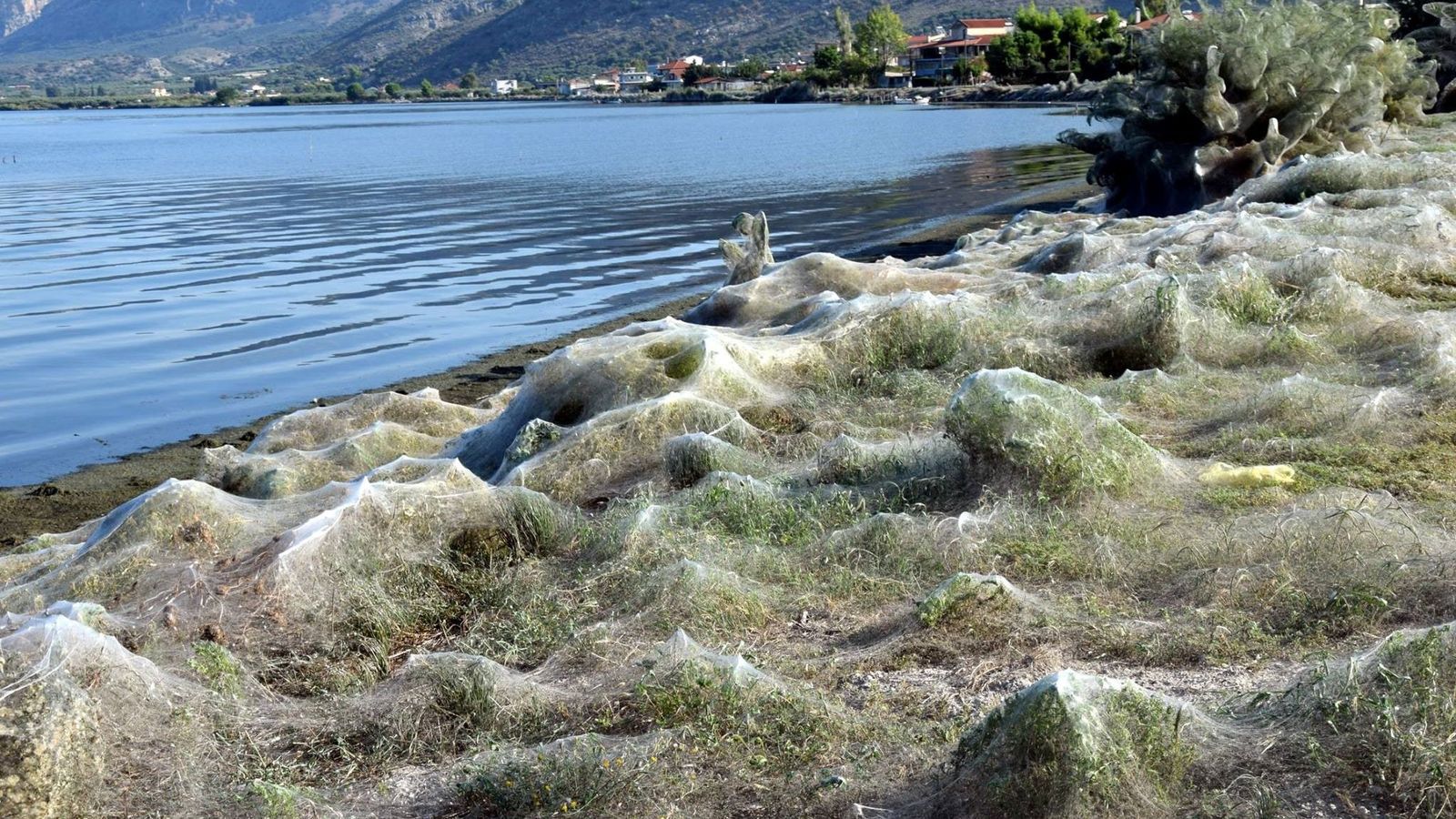Greek town covered in spider webs
Warm temperatures has sparked an ‘explosion’ in spider population of Aitoliko

A free daily email with the biggest news stories of the day – and the best features from TheWeek.com
You are now subscribed
Your newsletter sign-up was successful
A Greek beach has been turned into an arachnophobe’s worst nightmare, as hoards of spiders weave thousands of cobwebs all along the shoreline.
Newsweek reports that “warm temperatures and an abundance of food” has prompted an “explosion in the spider population” in the western town of Aitoliko, where their webs now cover an area stretching 300 metres.
Maria Chatzaki, a biology professor at Greece’s Democritus University of Thrace, says the creepy-crawlies appear to belong to the genus Tetragnatha, commonly known as stretch spiders due to their elongated bodies.
The Week
Escape your echo chamber. Get the facts behind the news, plus analysis from multiple perspectives.

Sign up for The Week's Free Newsletters
From our morning news briefing to a weekly Good News Newsletter, get the best of The Week delivered directly to your inbox.
From our morning news briefing to a weekly Good News Newsletter, get the best of The Week delivered directly to your inbox.
“These spiders are not dangerous for humans and will not cause any damage to the area’s flora,” she told Greek-language news site Newsit.gr. “The spiders will have their party and will soon die.”
Local resident Giannis Giannakopoulos told CNN that he first noticed the “veil of webs” earlier this week and took photos.
“It’s natural for this area to have insects, no one is especially worried,” he said. “But I have never seen any spider webs this big in my life.”
Biologist Fotis Pergantis, president of the region’s Messolonghi National Lagoon Park, says the warm weather has led to an increase in the presence of gnats, on which the spiders feed.
A free daily email with the biggest news stories of the day – and the best features from TheWeek.com
“When these temperatures last long enough, we can see a second, third and fourth generation of the gnats and end up with large amounts of their populations,” he said.
“It’s the simple prey-predator phenomenon. It’s the ecosystem’s natural reactions and once the temperatures begin to drop and the gnat populations die out, the spider populations will decrease as well.”
-
 The Olympic timekeepers keeping the Games on track
The Olympic timekeepers keeping the Games on trackUnder the Radar Swiss watchmaking giant Omega has been at the finish line of every Olympic Games for nearly 100 years
-
 Will increasing tensions with Iran boil over into war?
Will increasing tensions with Iran boil over into war?Today’s Big Question President Donald Trump has recently been threatening the country
-
 Corruption: The spy sheikh and the president
Corruption: The spy sheikh and the presidentFeature Trump is at the center of another scandal
-
 Epstein files topple law CEO, roil UK government
Epstein files topple law CEO, roil UK governmentSpeed Read Peter Mandelson, Britain’s former ambassador to the US, is caught up in the scandal
-
 Iran and US prepare to meet after skirmishes
Iran and US prepare to meet after skirmishesSpeed Read The incident comes amid heightened tensions in the Middle East
-
 Israel retrieves final hostage’s body from Gaza
Israel retrieves final hostage’s body from GazaSpeed Read The 24-year-old police officer was killed during the initial Hamas attack
-
 China’s Xi targets top general in growing purge
China’s Xi targets top general in growing purgeSpeed Read Zhang Youxia is being investigated over ‘grave violations’ of the law
-
 Panama and Canada are negotiating over a crucial copper mine
Panama and Canada are negotiating over a crucial copper mineIn the Spotlight Panama is set to make a final decision on the mine this summer
-
 Why Greenland’s natural resources are nearly impossible to mine
Why Greenland’s natural resources are nearly impossible to mineThe Explainer The country’s natural landscape makes the task extremely difficult
-
 Iran cuts internet as protests escalate
Iran cuts internet as protests escalateSpeed Reada Government buildings across the country have been set on fire
-
 US nabs ‘shadow’ tanker claimed by Russia
US nabs ‘shadow’ tanker claimed by RussiaSpeed Read The ship was one of two vessels seized by the US military